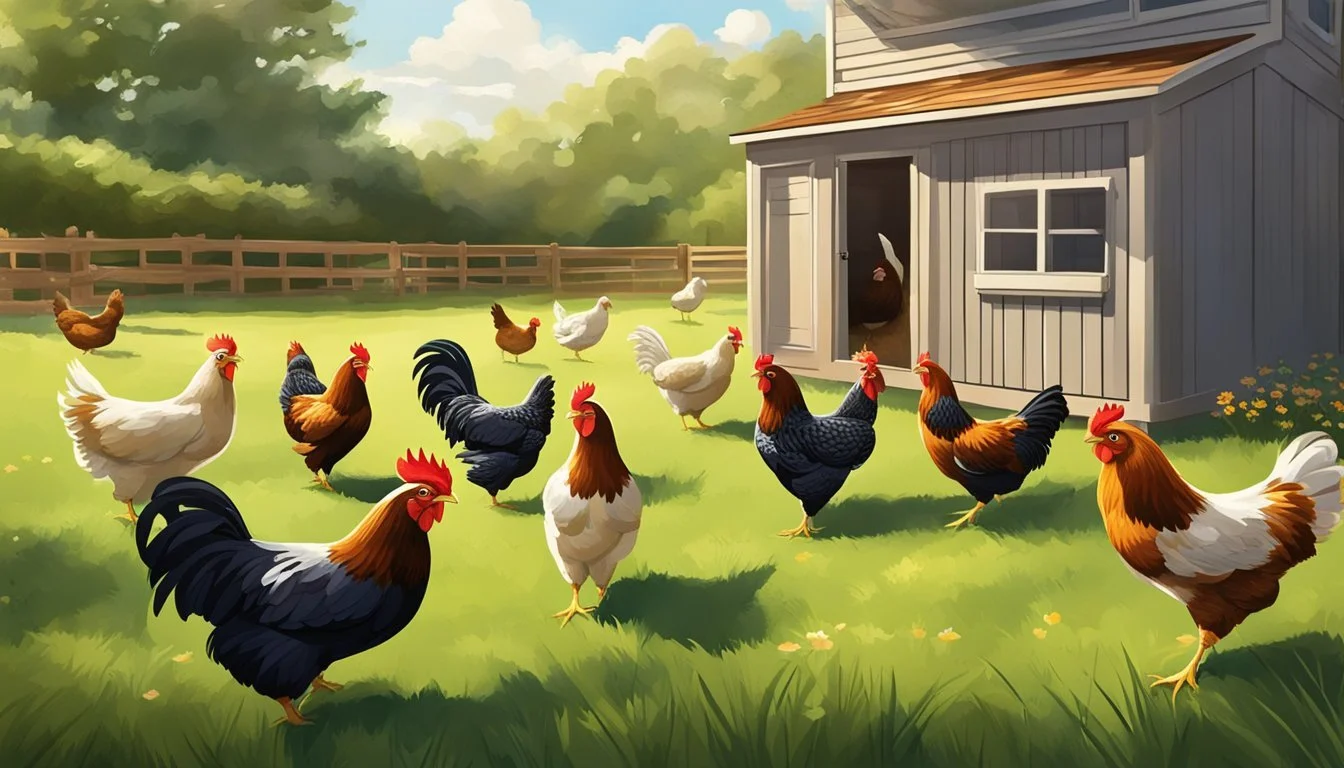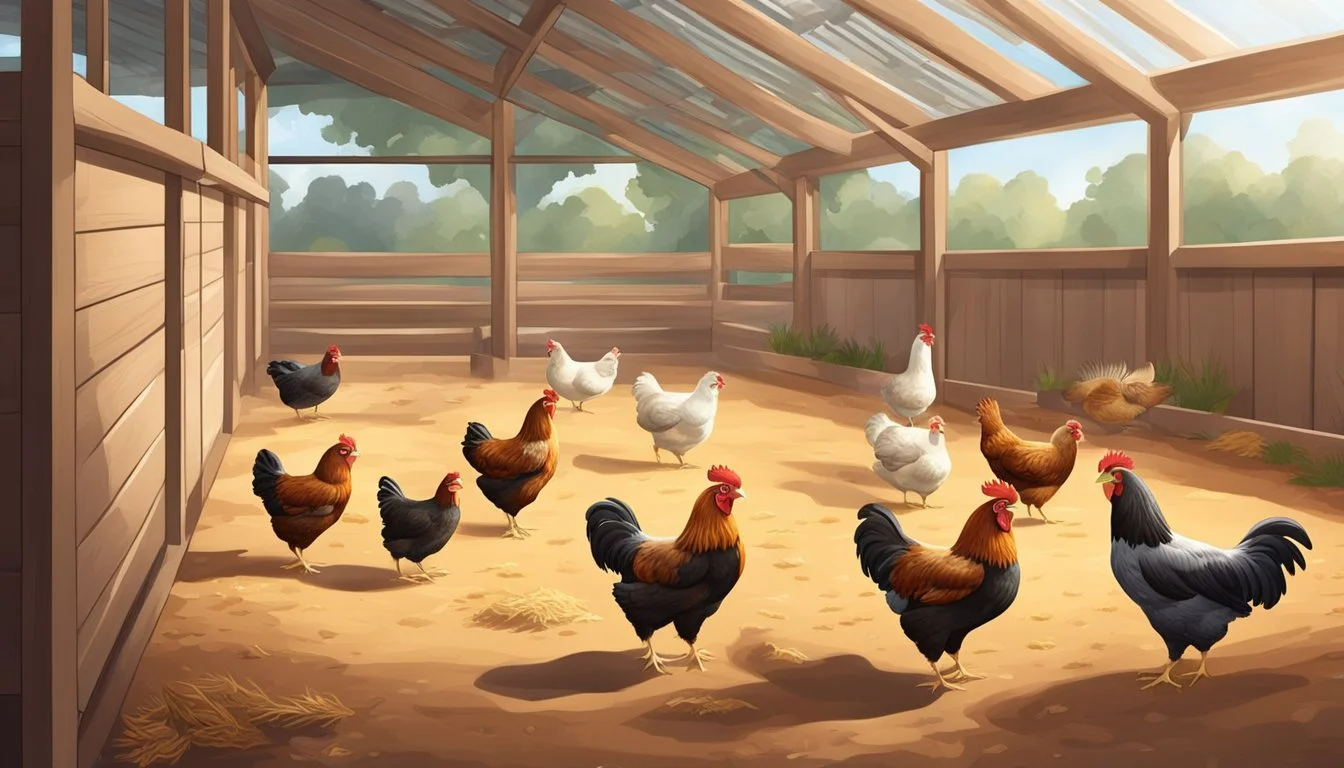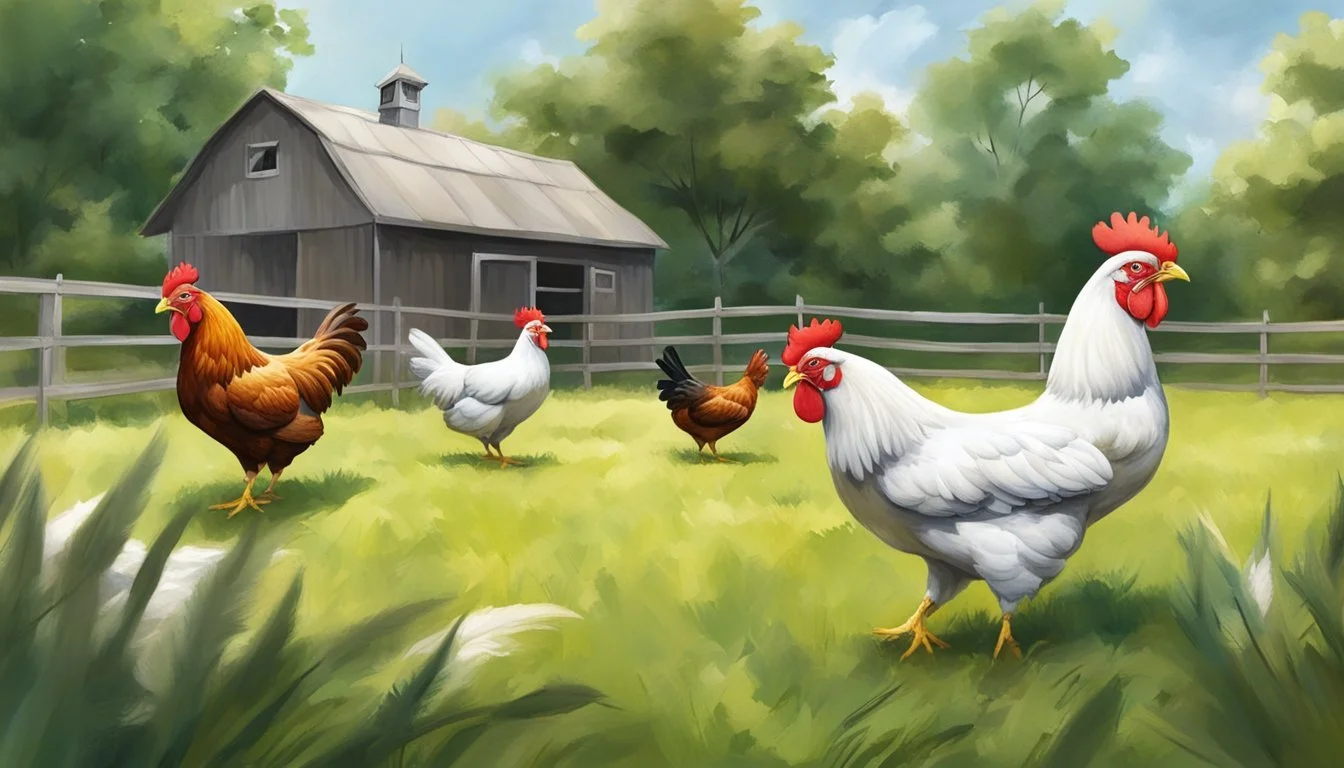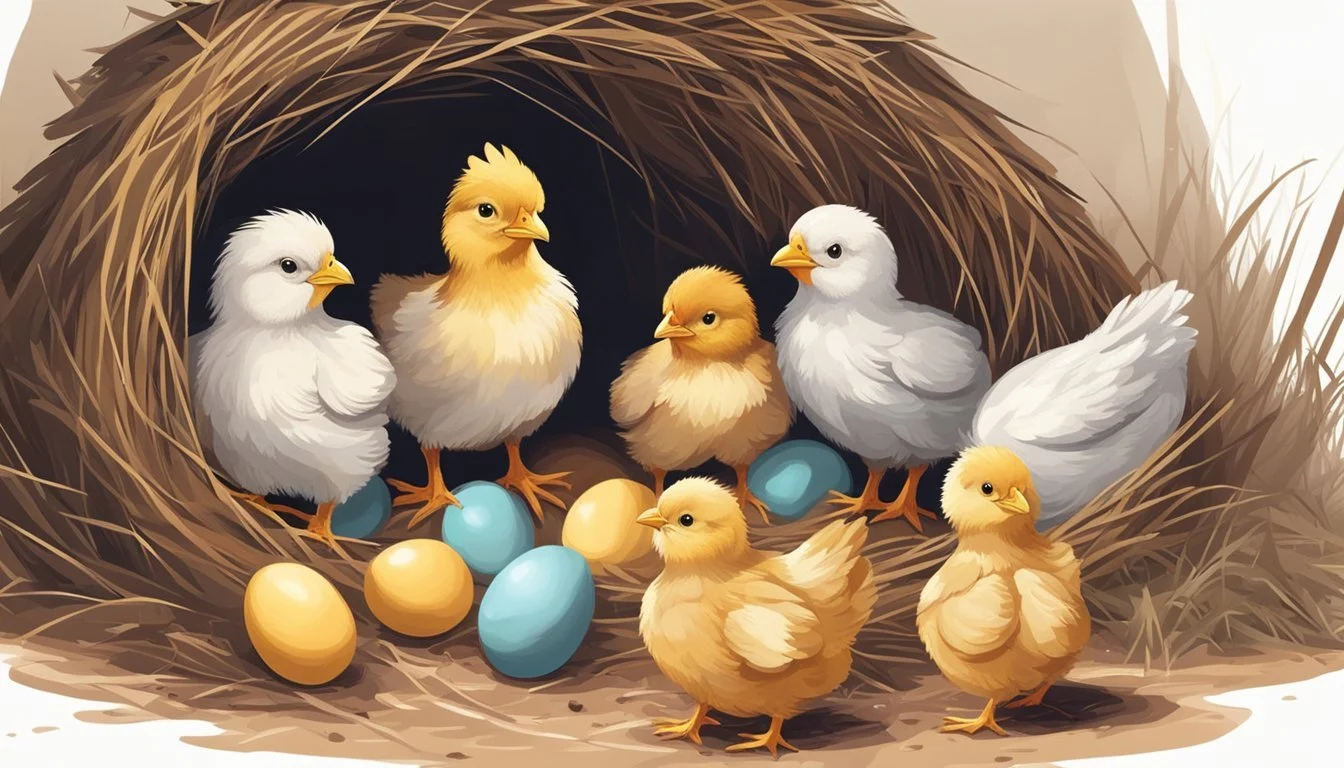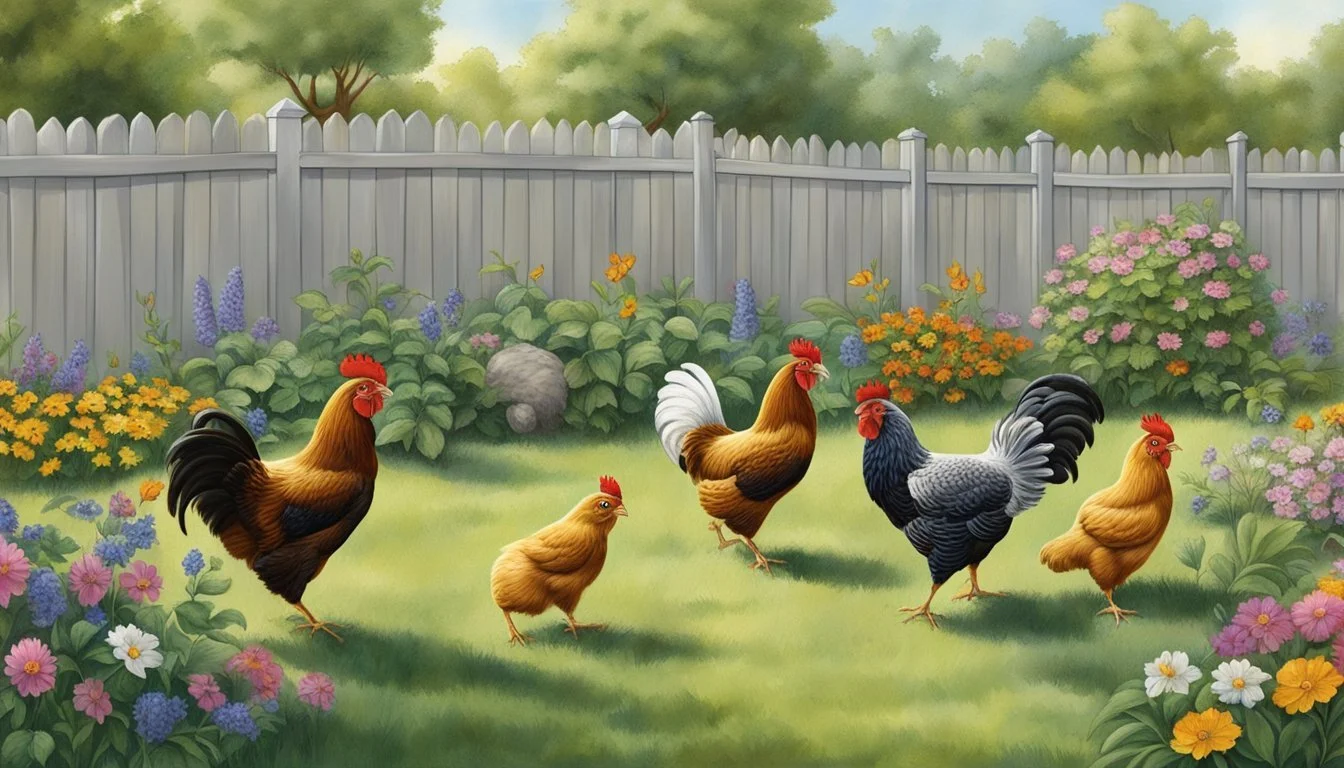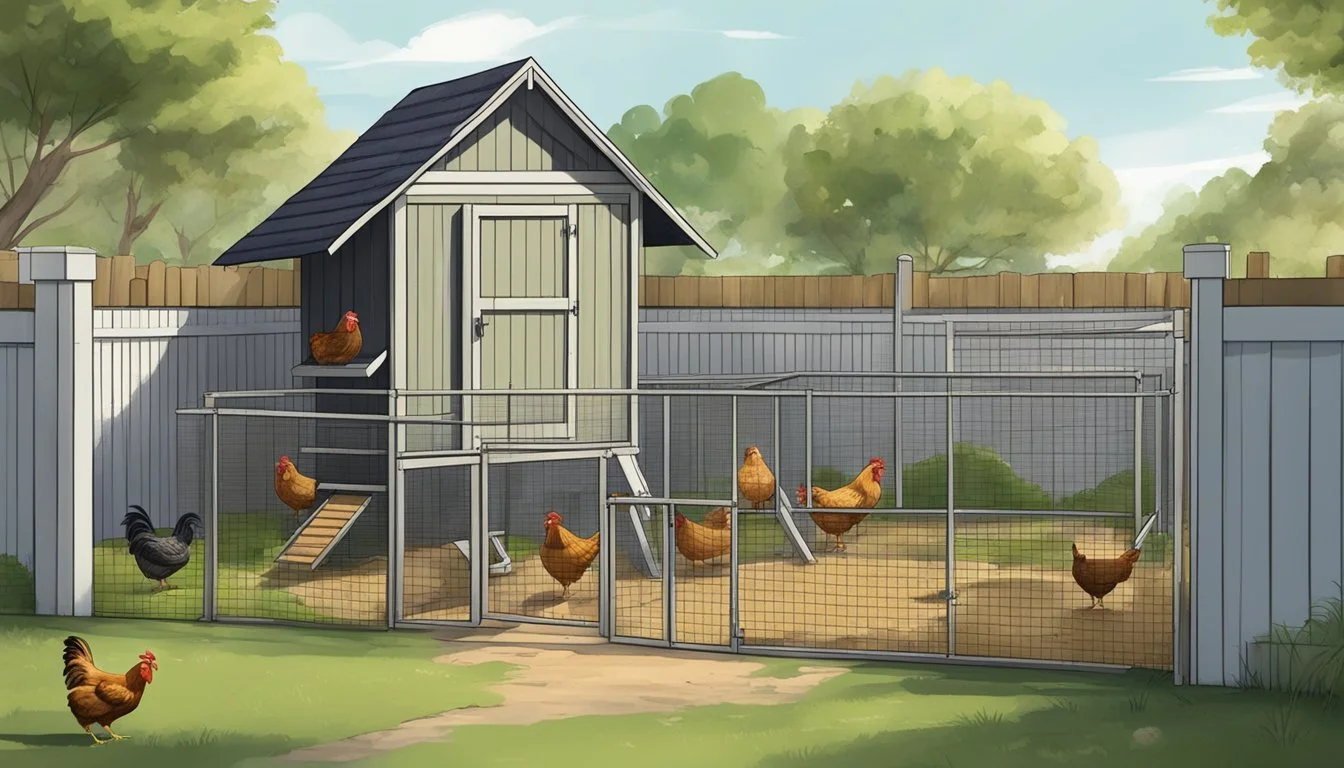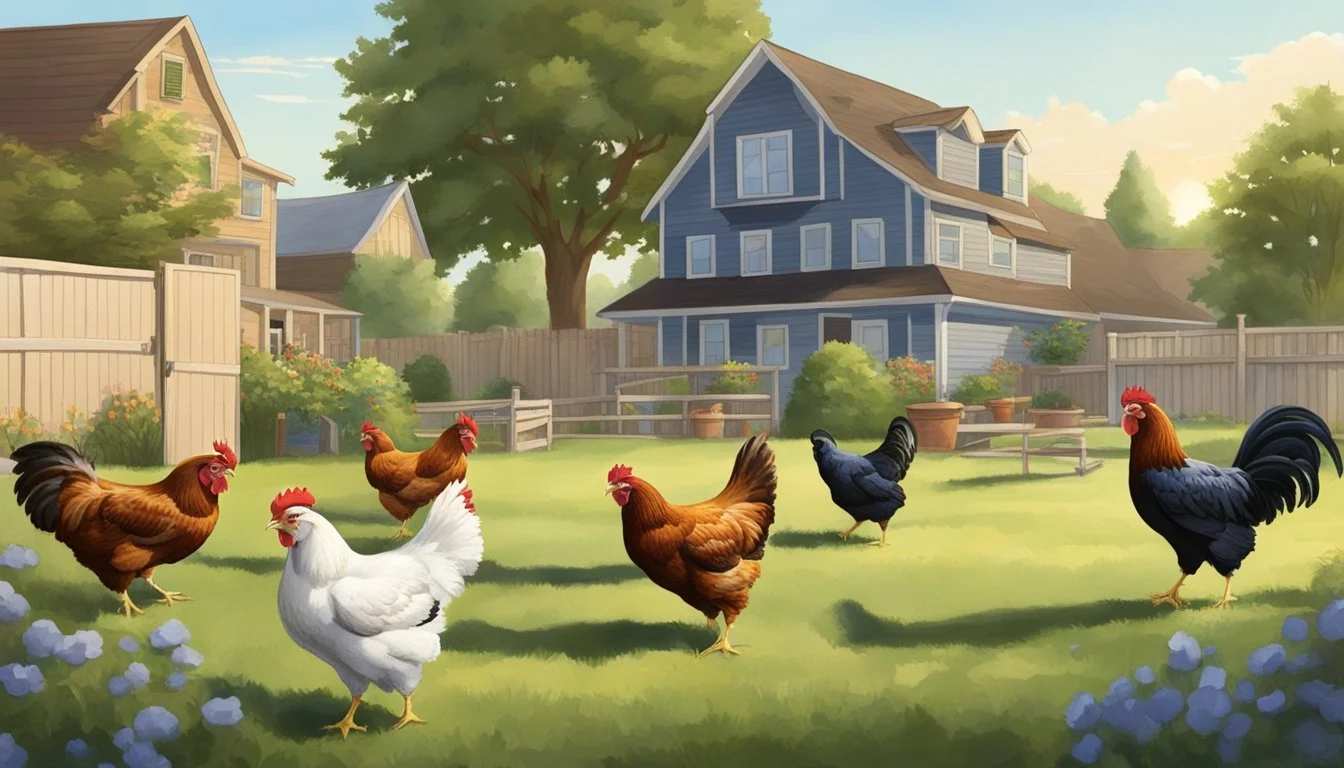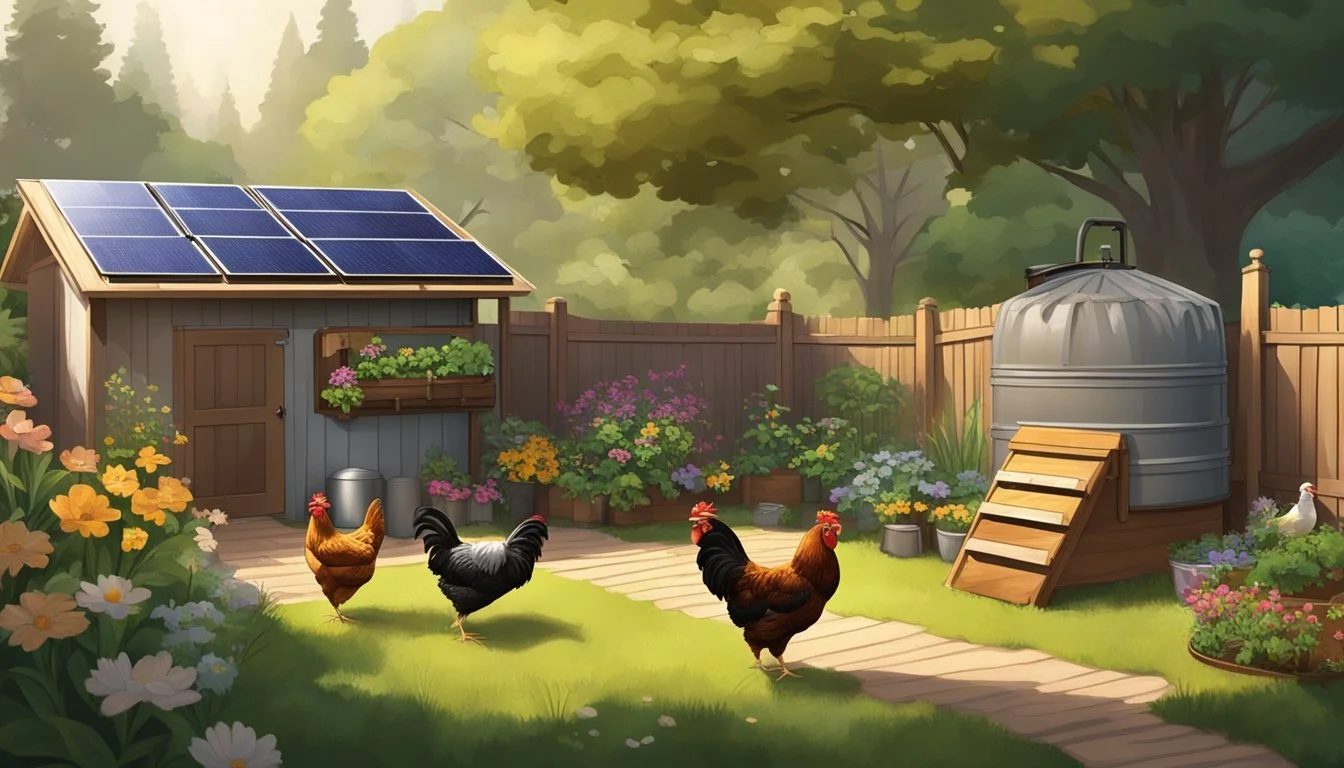Keeping Backyard Chickens in Frisco, TX
Essential Guidelines for Residents
Keeping chickens in the backyard has become an increasingly popular practice among residents looking for fresh eggs, natural pest control, and the simple joys of poultry husbandry. In Frisco, Texas, this trend is evident, with many locals embracing the experience of raising chickens within city limits. The city allows the keeping of chickens under specific conditions, aligning with a movement toward sustainable living and urban agriculture.
Frisco's approach to backyard chickens is accommodating yet regulated to ensure harmony within the community. While the city permits the raising of chickens, it imposes restrictions concerning the number, housing, and maintenance of these birds. Prospective and current chicken keepers in Frisco are thus advised to familiarize themselves with the local ordinances to comply with legal requirements and good neighborly practices.
The local regulations in Frisco are designed to balance the benefits of keeping chickens with the need to maintain the residential character of neighborhoods. They address concerns such as sanitation, noise control, and the wellbeing of the chickens themselves. These rules demonstrate Frisco's recognition of the value of urban farming initiatives while prioritizing community standards and public health.
Understanding Local Regulations in Frisco
When considering keeping backyard chickens in Frisco, it is essential to be aware of specific regulations. Residents must navigate city ordinances and zoning laws, as well as adhere to guidelines set by homeowner associations where applicable.
City Ordinances and Zoning Laws
The city of Frisco, Texas, permits the keeping of chickens, but with limitations. Residents can have up to 12 chickens, depending on the specifications of their residential lots. However, one crucial regulation is that roosters are not allowed due to noise concerns. It is advisable for residents to acquire a permit to stay in compliance with city ordinances. Further restrictions may govern the size of chicken enclosures and maintenance requirements to ensure proper sanitation and minimal disturbance.
Frisco's local ordinances are designed to balance the interests of chicken owners with the welfare of the community. These ordinances ensure that while residents can engage in the practice of raising chickens, they do so in a manner that is respectful to their neighbors and the environment.
Permit Required: Yes, for keeping chickens.
Maximum Number of Chickens Allowed: 12 (May vary based on lot size).
Roosters Allowed: No
Enclosure Regulations: Specific size and maintenance rules apply.
Homeowner Association Guidelines
Residents of Frisco may also be subject to the rules of their Homeowner Associations (HOAs). Some subdivisions have covenants that restrict or disallow the ownership of backyard chickens. It is imperative for residents to check with their HOA to understand the additional layer of rules that might need to be followed.
Many HOAs have detailed provisions regarding:
Allowance of Backyard Chickens: Determined by individual HOA covenants.
Number of Chickens: May be more restrictive than city ordinances.
Enclosure Location and Size: Often specified by HOAs.
By staying informed about both city ordinances and the guidelines of homeowners associations, residents of Frisco can ensure they are compliant in their backyard chicken-keeping endeavors.
Selecting the Right Chicken Breed
In Frisco, TX, selecting the right chicken breed is crucial for those who wish to align their backyard flock with local regulations, climate, and egg production goals.
Characteristics of Common Breeds
Common chicken breeds found in Texas vary widely in terms of appearance, temperament, and adaptability to climate. For instance:
Sussex: They are robust, with good foraging capabilities, making them well-suited to Texas backyards.
Araucana: Known for their distinctive blue eggs and tufted ears, they thrive in a variety of conditions.
Cochin: With their thick feathering, these chickens are friendly and make excellent pets, but may require more care to manage overheating in Texas heat.
Andalusians: They are better suited for warmer climates, making them a good choice for Texas, though they're not as cold-hardy.
One must also consider the size of the chicken, as larger breeds may require more space, and bantam breeds, while smaller, can still be quite productive in terms of egg laying.
Choosing Breeds for Egg Production
When focusing on egg production, several breeds stand out for their prolific laying abilities:
Australorp: They are known for being calm and friendly, and can lay up to 5-6 eggs per week.
Barred Rock: These chickens are hardy, friendly, and consistent layers, well-suited for Texas environments.
Delaware: Renowned for their good-natured disposition and high egg production.
It's important to account for not just the quantity of the eggs, but also the size and color preferences. Breeds like the Araucana can add variety with their blue eggs, while others like the Lohmann Brown are industry favorites for their egg-laying efficiency, often producing over 300 eggs a year.
Setting Up Your Chicken Coop
When embarking on the venture of raising backyard chickens in Frisco, Texas, a well-designed chicken coop is essential. It is critical to consider space requirements and predator security to ensure the health and safety of your flock.
Coop Design and Space Requirements
An optimal chicken coop combines ample space with functionality. Each chicken requires 2-3 square feet of space inside the coop to live comfortably. Additionally, they need 8-10 square feet of outdoor space for essential behaviors like scratching and dust bathing.
Nesting Boxes should be on your checklist too. Consider allocating one nesting box for every 4-5 birds, with each box being at least 12x12 inches. It’s important to fill these boxes with soft materials such as straw or wood shavings to ensure both comfort for the hens and protection for the eggs.
Security Against Predators
The safety of your chickens from predators is paramount. Constructing the coop with hardware cloth is more secure than using chicken wire, as it is sturdier and better at keeping predators out. Be sure to bury the hardware cloth a few inches underground to deter digging animals.
The coop's entrance must be secure; a door that closes tightly is necessary to keep chickens safe at night. One might consider using automatic coop door openers for added convenience and security. Locks on doors and nesting boxes are also advised to prevent any unwanted access.
Feeding and Nutrition
Proper feeding and nutrition are crucial for the health and productivity of backyard chickens in Frisco, TX. Owners must understand the specific needs at different stages of the chickens' lives, from chicks to pullets and mature livestock.
Feeding Schedules
Chickens thrive on a regular feeding schedule. Chicks require feeding four to five times a day with starter feed high in protein to accommodate their rapid growth. As they develop into pullets, their feeding can be reduced to twice a day with a transition to a lower-protein grower feed. Mature chickens, once they begin laying eggs, benefit from a layer feed rich in calcium, which can be provided once or twice daily.
Nutritional Needs for Different Breeds
Each breed of chicken has distinctive nutritional requirements. For example, laying breeds such as the Leghorn or Sussex need a diet rich in calcium and protein to maintain robust egg production. Meat breeds, like the Cornish Cross, require feeds high in energy and protein to support their faster growth rate. Specialty and bantam breeds often do well on a balanced diet that fulfills the basic nutritional needs of poultry, including carbohydrates, fats, vitamins, and minerals. It is essential to provide all chickens with access to fresh water at all times.
Health and Wellness
Raising backyard chickens in Frisco, TX demands awareness of their health and wellness to ensure they thrive in a backyard setup. This section addresses the prevention of common diseases and the importance of regular veterinary care to sustain a therapeutic environment for the chickens.
Common Diseases and Prevention
Chickens are susceptible to a variety of diseases; however, many can be prevented with proper care and hygiene. Marek's disease, coccidiosis, and respiratory infections like avian influenza are some of the common ailments.
Marek's Disease: Vaccination at the time of hatching is the most effective prevention measure.
Coccidiosis: Maintaining dry and clean bedding helps prevent occurrence. Also, consider medicated feed as a preventative method.
Respiratory Infections: Ensure good ventilation in coops and manage dust to lower the risk of infections.
Preventive measures include quarantine for new birds and biosecurity practices like disinfecting boots and tools to prevent the spread of pathogens.
Regular Check-ups and Veterinary Care
Regular veterinary check-ups contribute significantly to the health and wellness of backyard chickens. These check-ups can identify issues early on and provide advice on diet, housing, and hygiene which can prevent outbreaks of disease and parasites.
Annual Check-ups: Aim for at least a yearly examination for your flock.
Emergency Care: Know the contact details of a local vet who is skilled in avian medicine for any sudden illness or injury.
Maintaining a sanitary environment and keeping a close watch on the chickens' behavior and physical condition allows for a therapeutic and stress-reduced existence for the birds, improving their overall welfare and productivity.
Egg Handling and Usage
Responsible handling and efficient usage of eggs from backyard chickens ensure both food safety and contribute to self-sufficiency. The tasks include collecting and cleaning the eggs promptly as well as incorporating the eggs into the household's diet or preserving them.
Collecting and Cleaning Eggs
Collecting Eggs: Backyard chickens in Frisco, TX usually start laying eggs at around five to six months of age. On average, one can expect a hen to produce close to 250 eggs annually. For optimal freshness, eggs should be collected daily.
Frequency: Daily collection reduces the risk of eggs getting dirty or damaged.
Nest Boxes: It's essential to maintain clean nest boxes; this minimizes the cleaning required for the eggs.
Cleaning Eggs: Once collected, eggs must be cleaned properly to remove any bacteria present on the shell.
Dry Cleaning: Gently brush off any debris with a soft brush or sandpaper.
Wet Cleaning (if necessary): Use warm water and a mild detergent to wash the eggs; rinse and dry them immediately to avoid bacteria penetration through the pores of the eggshell.
Utilizing Eggs for Self-Sufficiency
Fresh Consumption: Fresh eggs can be a vital part of the diet, offering a reliable source of high-quality proteins and other nutrients.
Preservation: For longer-term storage, one can preserve eggs by:
Refrigeration: Extend shelf-life for several weeks.
Freezing: Eggs can be beaten and frozen for use in recipes later.
Pickling: Pickled eggs are a traditional method of preservation that can extend their usability.
Composting Shells: After egg consumption, the shells can be crushed and added to compost piles. They provide a valuable source of calcium that is beneficial for soil health and plant growth.
Backyard chickens not only contribute to self-sufficiency through egg production but also aid in waste reduction by allowing eggshells to be returned to the earth as a resource.
Understanding Fowl Behavior
When raising backyard chickens in Frisco, TX, it's essential to recognize their behavior patterns. This knowledge ensures better management and a harmonious flock.
Social Dynamics in the Flock
Chickens are social creatures with a well-defined hierarchy known as the "pecking order." This order determines access to food, nesting sites, and companionship. In a flock, each chicken has a rank, and new introductions can disrupt the social structure unless carefully managed. Observing how chickens interact can help owners spot issues like bullying or illness, which may manifest as changes in the pecking order.
Training and Handling
Although training chickens might seem unconventional, they can learn various behaviors through consistent handling and positive reinforcement. Training can encompass:
Responding to Calls: Chickens can learn to come when called, which is particularly useful for free-range chickens as it helps gather them back into their coop.
Habituation to Handling: Regular, gentle handling can make chickens more accustomed to human interaction, easing the processes of health checks and other necessary handling.
Breeding and Raising Chicks
In Frisco, TX, breeding and raising backyard chickens begins with understanding incubation and the care necessary for newborn chicks. Starting with viable hatching eggs and creating a stable environment for them to develop is crucial. Once hatched, chicks require attentive care to ensure a healthy start to their lives.
Incubation Practices
Proper incubation is key to successful chicken breeding. Here is an overview of optimal incubation practices:
Temperature Control: The incubator should maintain a constant temperature of 99.5°F (37.5°C) with minimal fluctuations.
Humidity Regulation: Maintain relative humidity at around 50-55% during incubation, increasing to 65-75% in the last few days before hatching.
Egg Turning: Turn eggs at least three to five times daily to prevent the embryo from sticking to the shell and to ensure even heat distribution.
Regular monitoring and adjustments to the incubator settings are essential for the eggs to develop into healthy chicks.
Caring for Newborn Chicks
Once the chicks have hatched, providing appropriate care during the first few weeks is critical for their survival and growth. Key care aspects include:
Brooder Setup: Equip the brooder with a heat lamp to keep the chicks warm, maintaining the brooder temperature at 95°F (35°C) for the first week and reducing it by 5°F each subsequent week.
Feed and Water: Supply a continuous source of fresh water and starter feed specifically formulated for chicks.
Sanitation: Keep the brooder clean by changing bedding regularly and removing waste to prevent disease.
Monitoring the chicks for any signs of distress or sickness is crucial, and they should always have enough space to move, rest, and grow.
Interacting with Local Wildlife
In Frisco, TX, backyard chicken keepers must consider local wildlife interactions carefully to ensure the safety of their flocks and maintain a harmonious environment.
Protecting Chickens from Predators
Securing Coops and Runs: It's essential to safeguard chickens by fortifying their living spaces against predators. Use hardware cloth instead of chicken wire for enclosures, ensuring gaps and openings are no larger than half an inch. Bury the cloth at least one foot underground to thwart digging predators.
Utilizing Motion-Detected Lighting: Install motion-activated lights around the coop and run area. These lights startle and deter nocturnal predators, such as raccoons, opossums, and potentially coyotes, commonly found in Frisco.
Coexisting with Urban Wildlife
Implementing Preventative Measures: Residents can contact Frisco Animal Services for guidance on living alongside urban wildlife and preventing unwelcome encounters. Keep the environment clean to avoid attracting animals seeking food.
Managing Food Sources: Ensure chicken feed is stored in secured containers and remove leftovers that might entice wildlife. Composting should be managed properly to not attract animals with the scent of food scraps.
Community and Legal Considerations
When keeping backyard chickens in Frisco, Texas, residents must consider both community relations and adhere to specific legal requirements. Navigating these concerns effectively ensures a harmonious and lawful backyard poultry experience.
Navigating Neighbors' Concerns
Keeping chickens can lead to various concerns among neighbors, primarily regarding noise, odors, and potential attraction of pests. To mitigate these issues, residents should maintain clean coops and contain their chickens within a designated space to minimize disruptions. Communication with neighbors is key; being transparent about one's intentions and addressing concerns proactively can lead to a more supportive environment.
Participating in Local Poultry Communities
Participation in local poultry communities can provide invaluable resources for backyard chicken enthusiasts in Frisco. Through these communities, individuals can share best practices, stay informed on city regulations, and advocate for chicken-friendly policies. One can find such groups on social media platforms or through Texas-based poultry organizations.
Best practices: Sharing experiences and knowledge on coop design, chicken care, and more.
Regulation updates: Distributing information on any changes in laws or ordinances affecting backyard poultry.
Policy advocacy: Collaborating to maintain or improve conditions for keeping chickens in residential areas within Frisco and other chicken-friendly cities in Texas.
Additional Poultry and Livestock
In Frisco, TX, backyard poultry enthusiasts often consider diversifying their flocks with other fowl species, and might also explore keeping certain types of livestock. Understanding and complying with local regulations is essential for maintaining this diversity responsibly and legally.
Incorporating Other Fowl Species
In Frisco, alongside chickens, residents may also be interested in keeping other types of fowl, such as ducks, geese, and turkeys. However, it's important to ensure that any additional species can be safely and humanely accommodated within the space available, and that they won't violate any city ordinances. While ducks and geese can often adapt to backyard environments, their need for water and the potential for noise should be carefully considered. On the other hand, turkeys require more space due to their larger size, and the legality of keeping them may differ from the rules for chickens.
Understanding Livestock Laws
When it comes to livestock, including horses, sheep, goats, mules, and hogs, city ordinances are typically more stringent. For instance:
In Dallas, regulations for keeping livestock within city limits are strict, often requiring large minimum lot sizes and specific zoning permissions.
San Antonio generally allows livestock in residential areas, subject to restrictions on the number of animals and the size of the property.
Mansfield has specific requirements regarding the distance livestock must be kept from neighboring residences.
Galveston regulates the keeping of livestock according to the city's ordinances, which may require permits or adherence to health and safety codes.
For all livestock, one should provide adequate shelter, fencing, and care to ensure their well-being and to minimize any nuisance to neighbors. Livestock ownership requires a significant commitment to animal welfare and to meeting the specific needs of each type of animal. It is crucial to consult with the city's Animal Services or local governing body for the most accurate and current information on livestock laws.
Sustainability Practices
When keeping backyard chickens in Frisco, Texas, there are targeted sustainability practices to consider. These practices help in reducing waste while nurturing a more environmentally-friendly backyard ecosystem.
Using Chickens for Composting
Chickens naturally contribute to the composting process by breaking down organic kitchen scraps and garden waste. Frisco residents can leverage this behavior by:
Allowing hens to process and aerate compost piles, thus accelerating decomposition.
Collecting chicken manure, which is rich in nitrogen, perfect for amending garden soil.
Designing a system where the compost area is easily accessible to the chickens, ensuring they can assist in turning the material.
Implementing a Free-Range System
A free-range system benefits both backyard chickens and the environment. Such a system allows chickens to:
Forage for a significant portion of their diet, reducing reliance on commercially produced feed and lowering the carbon footprint.
Naturally fertilize the yard as they roam, which can enhance soil quality and reduce the need for chemical fertilizers.
To implement a successful free-range system in Frisco, homeowners should:
Ensure adequate space is available to support the chicken flock without causing land degradation.
Rotate pasture areas to allow for regrowth and to prevent overuse of any one section.
Use mobile coops to facilitate the rotational grazing process and provide the chickens with shelter.
Legal Changes and Advocacy
Keeping backyard chickens in Frisco, TX, is subject to city regulations that can change. This section explores local law amendments and efforts for advocating backyard chicken keeping.
Staying Informed on Local Law Amendments
Residents of Frisco must monitor local ordinances to ensure compliance with the latest rules governing backyard chickens. The city may impose regulations regarding the number, enclosure size, and noise levels of domesticated chickens. Notably, Texas Senate Bill 326, introduced in the 88th Legislature, implicates the authority of municipalities to regulate the raising or keeping of chickens, making it crucial for residents to track such legislative activity.
Advocacy for Backyard Chicken Keeping
Advocates for backyard chicken keeping in Frisco often argue for the benefits they bring, such as sustainable living and local food production. They may work to influence local policy by engaging with city officials, participating in community meetings, and providing educational resources on the responsible keeping of chickens. By staying proactive, supporters aim to maintain and improve the rights of residents to keep chickens within the city.

